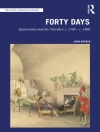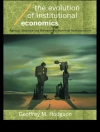Europe’s great colonial empires have long been a thing of the past, but the memories they generated are still all around us. They have left deep imprints on the different memory communities that were affected by the processes of establishing, running and dismantling these systems of imperial rule, and they are still vibrant and evocative today. This volume brings together a collection of innovative and fresh studies exploring different sites of imperial memory – those conceptual and real places where the memories of former colonial rulers and of former colonial subjects have crystallised into a lasting form. The volume explores how memory was built up, re-shaped and preserved across different empires, continents and centuries. It shows how it found concrete expression in stone and bronze, how it adhered to the stories that were told and retold about great individuals and how it was suppressed, denied and neglected.
Tabela de Conteúdo
1. Beyond national memory. Nora’s Lieux de Mémoire across an imperial world – Dominik Geppert and Frank Lorenz Müller
PART I: Monuments
2. Transmissible sites: monuments, memorials and their visibility on the metropole and periphery – Xavier Guégan
3. Politics, caste and the remembrance of the Raj: the Obelisk at Koregaon – Shraddha Kumbhojkar
4. The thirteen martyrs of Arad: a monumental Hungarian history – James Koranyi
5. Heroes, victims, and the quest for peace: war monuments and the contradictions of Japan’s post-imperial commemoration – Barak Kushner
PART II: Heroes and villains
6. From the penny press to the plinth: British and French ‘heroic imperialists’ as sites of memory – Berny Sèbe
7. Jan Pieterszoon Coen: a man they love to hate. The first governor-general of the Dutch East Indies as an imperial site of memory – Victor Enthoven
8. The memory of Lord Clive in Britain and beyond: imperial hero and villain – Richard Goebelt
9. David Livingstone, British protestant missions, memory and empire – John Stuart
10. Freedom fighter and anti-tsarist rebel: Imam Shamil and imperial memory in Russia – Stefan Creuzberger
PART III: Remembering and forgetting
11. From Nehruvian neglect to Bollywood heroes: the memory of the raj in post-war India – Maria Misra
12. ‘Forgive and forget’? The Mau Mau uprising in Kenyan collective memory – Winfried Speitkamp
13. Exploration and exploitation: German colonial botany at the Botanic Garden and Botanical Museum Berlin – Katja Kaiser
14. Recollections of rubber – Frank Uekötter
Select bibliography
Index
Sobre o autor
John Mac Kenzie is Emeritus Professor of Imperial History, Lancaster University and holds Honorary Professorships at Aberdeen, St Andrews and Stirling, as well as an Honorary Fellowship at Edinburgh.












